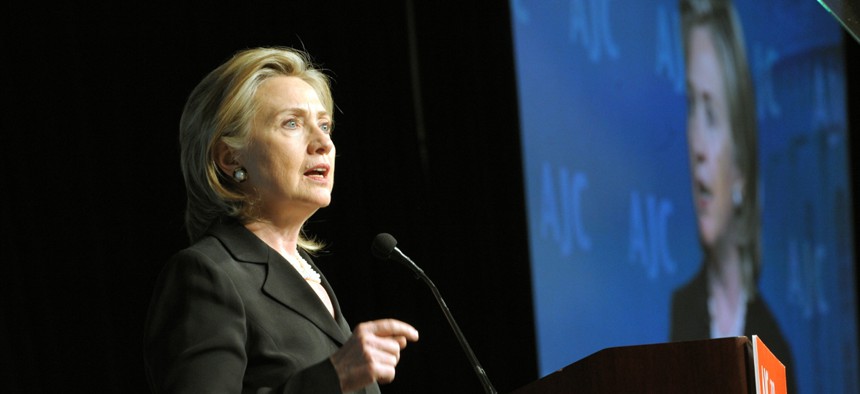
State Department file photo
The Benghazi Committee Served Hillary Clinton a Subpoena
After the Democratic front-runner told CNN she's "never had a subpoena," the GOP-led panel released the one it sent her in March.
House Republicans on Wednesday released the subpoena they issued in early March for emails from Hillary Clinton's private server, a day after Clinton said she had not been subpoenaed for the documents.
Clinton said on CNN Tuesday that "I've never had a subpoena." A transcript of her remarks is available here.
That drew a rebuke from Trey Gowdy, the GOP chairman of the House Select Committee on Benghazi, who said the need to "correct the inaccuracy" led him to break with his practice of not releasing subpoenas the panel has issued.
"The committee immediately subpoenaed Clinton personally after learning the full extent of her unusual email arrangement with herself, and would have done so earlier if the State Department or Clinton had been forthcoming that State did not maintain custody of her records and only Secretary Clinton herself had her records when Congress first requested them," Gowdy said in a statement.
The subpoena sought Clinton's messages from 2011 and 2012 related to Libya and the 2012 attack on a diplomatic compound and CIA facility in Benghazi that killed four Americans.
The State Department turned over those documents in February and made them public in May, but later could not locate all or parts of 15 of Clinton's emails with Sidney Blumenthal that he provided to the House panel, prompting new GOP criticisms about the completeness of Clinton's transfer of documents to the committee.
Aides to Clinton did not immediately respond Wednesday when asked about her remark on CNN. Clinton made the comment about the subpoena in the course of a broader defense of her email arrangement, and she did not face a subpoena at the time she turned over emails to the State Department or when she deleted them from her server.
"Everything I did was permitted. There was no law, there was no regulation, there was nothing that did not give me the full authority to decide how I was going to communicate," she said.







